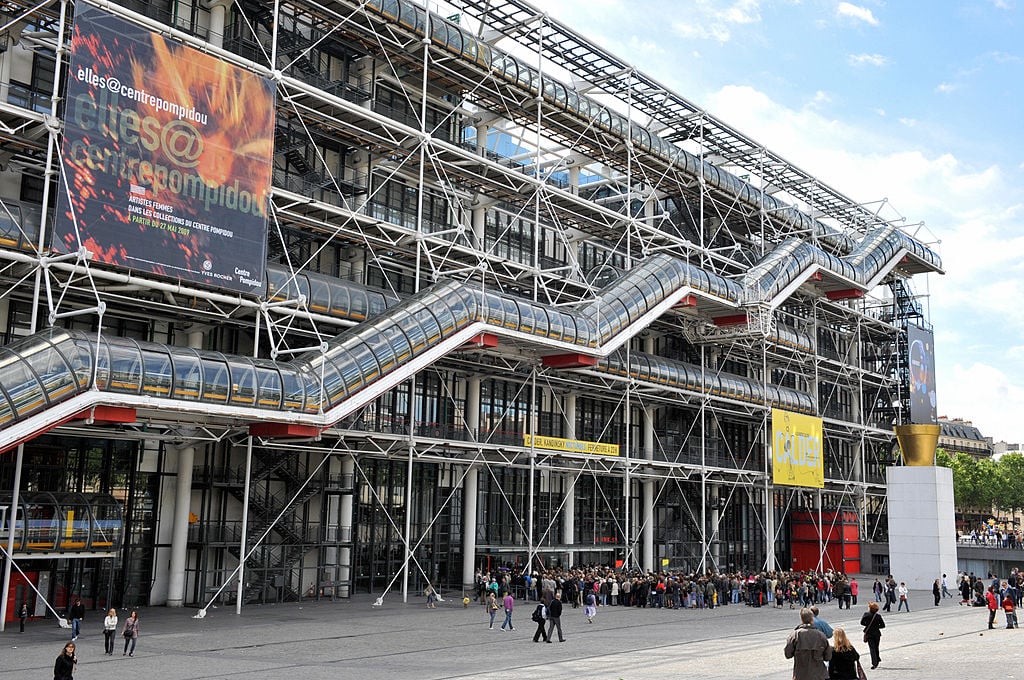
To mark 40 years since its inception, the Centre Pompidou, at the heart of Paris’s Le Marais, is celebrating with a year-long program of special exhibitions taking place all across France, before entering a two-year renovation phase slated for 2018-20, and estimated to cost about $108 million.
As part of the structure’s refurbishment, the museum will replace its famous outdoor escalator, dubbed “the caterpillar.” But the building will retain its famous inside-out appearance, even holding on to funnels that are no longer linked to the central air system and are purely decorative.
The museum’s management intends to keep the institution open throughout the entire renovation period. “It will be a sort of construction game, but our aim is to stay open,” said Serge Lasvignes, president of the Centre Pompidou, at a press conference last week.
Ever since its unveiling in 1977, the museum’s unusual design has been a bone of contention for Parisians and visitors alike. According to The Guardian, when architects Renzo Piano and Richard Rogers—young and unknown at the time—entered their proposal into the design competition, they didn’t think they stood a chance, so they opted for something eccentric and risky. Conservative president Georges Pompidou, who commissioned the museum, gave their model one glance and reportedly said, “Good grief, that’s going to cause a row.”
“When the museum first opened, people said it resembled a huge department store and it was out of the question to put masterpieces in ‘that thing’. Even artists didn’t want their work put in a building they thought looked like a supermarket,” Lasvignes told the press.
Today, the Centre Pompidou counts among the most important institutions for modern and contemporary art in Europe. Its chief curator Christine Macel is the director of this year’s Venice Biennale.
The museum holds an impressive collection of some 120,000 artworks, and last year managed to stage several blockbuster exhibitions—such as Paul Klee, René Magritte, and Cy Twombly. In 2016, it also saw a nine percent rise in visitor numbers, welcoming over 3 million people, while other landmark institutions in the French capital, such as the Musée d’Orsay and the Louvre, reported losses.